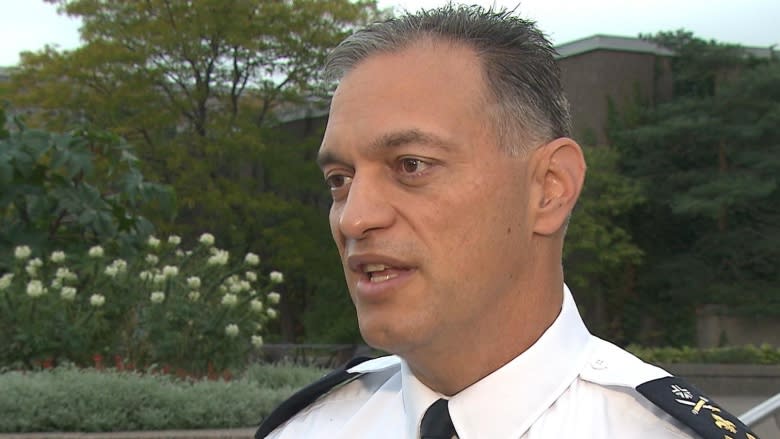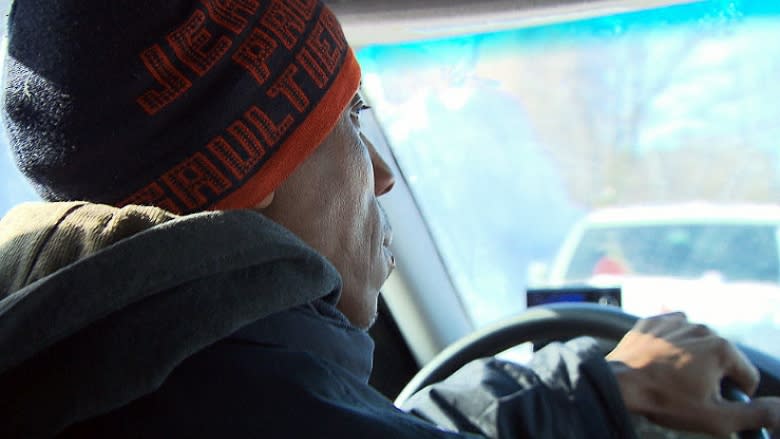Philippe Pichet says police camouflage pants 'a preoccupation'
Montreal's new police chief says he'd like to get his officers back into full uniform as soon as possible — but he's just not sure when that will happen.
Philippe Pichet, who was sworn in to the top job in August, said dealing with the lingering labour dispute is one of his priorities going forward.
"It's a preoccupation for me," Pichet said Wednesday, in his first interview with CBC Montreal's Daybreak since taking over the post.
"I would like to get back to the regular uniform tomorrow if it could be possible, but you know, right now they have the right to wear those pants, which is not very optimal for me."
Officers have been wearing camouflage pants for the past 18 months as a way to protest against the province's pension reform bill.
Pichet said he's hopeful he can find common ground with the Montreal Police Brotherhood, the union representing officers on the force, before the end of the year.
Defends role in student protests
Montreal Mayor Denis Coderre handpicked Pichet for the job in July, saying "he's shown me he's ready for another challenge."
Pichet has been with the force since the early 90s and held positions in operation planning and counter-terrorism.
He was also one of the lead officers coordinating the police response during the 2012 student protests.
On Daybreak, Pichet defended the way police handled those demonstrations.
"Every day that we had a protest, I was asking myself with the team on the field, 'Can we do more? Can we do better?'" he said.
When asked whether a May 2012 protest that ended with more than 500 arrests should have been handled differently, Pichet said no.
He explained that police tried to balance the right to protest with the right for residents, merchants and others to go about their daily business.
"That day I had to ask myself — if I'm not intervening, maybe we would have some criminal acts," he said.
'Working with the black community'
Pichet's predecessor, Marc Parent, said addressing the problem of racial profiling would be a priority during his tenure. However, allegations of racism continue to dog the force.
Pichet acknowledged more needs to be done.
"It's still a priority for us to make sure that there's no racial profiling," he said.
"We're working with the black community to make sure we can make something with them — not against them."




